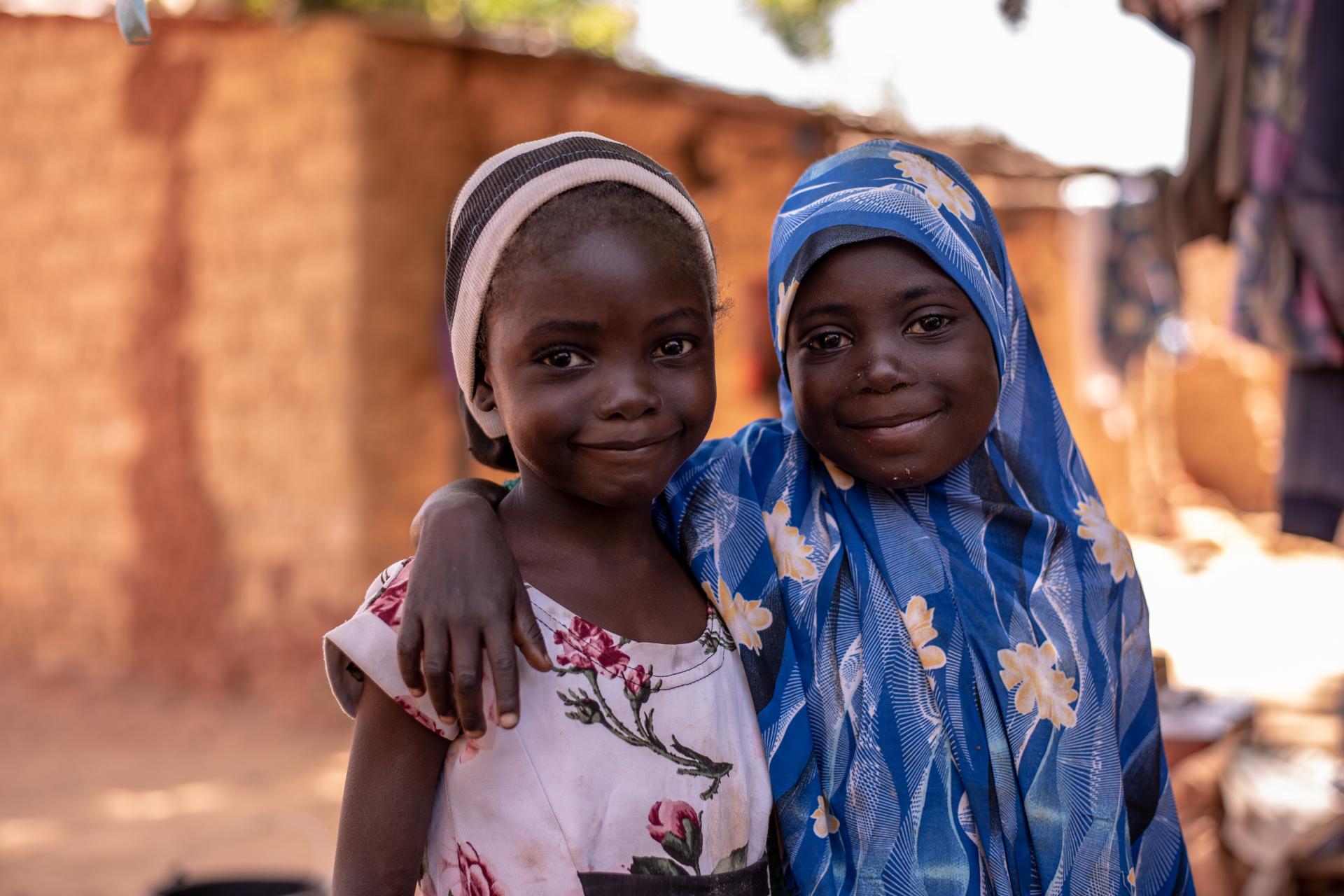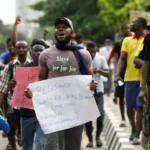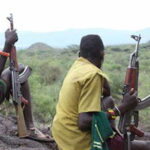From when she was a young secondary school student at the Lagos State Model College, Kankon, in Lagos State, Dorcas Elisha has always had the heart to do good for others. Still, it was not until she was an undergraduate at Ahmadu Bello University, Zaria, in Kaduna State, that she finally embraced her passion for social impact by starting Jesus Cares.
Through Jesus Cares, Elisha reached out to fellow students struggling with the challenges of life and academics. She used the platform to reassure them that their hardships would pass, emphasising that Jesus cared for them in ways they could scarcely imagine.
Reflecting on those efforts, Elisha humbly stated, “I was just trying to make a difference in the lives of students in my little way.”
When it was time for her National Youth Service Corps or NYSC in 2014, Elisha was posted to the Reformation Centre in Katsina, Northwest Nigeria. Here, she seized the opportunity to work with children facing issues related to drugs or character deformity. This experience was an eye-opener for her.
“During my work there, I realised that it wasn’t entirely the fault of these children that they found themselves there. Everybody has a part to play—parents, communities, and society. We all contribute to raising a holistic child,” Elisha explained.
Motivated by her interactions at the Reformation Centre, Elisha took the initiative to organise a program called “Transforming Minds.” The week-long event brought together parents, children, and other community members to enlighten them about their responsibilities in nurturing children who could grow into future leaders.
Additionally, the program aimed to inspire the children at the Reformation Centre, assuring them that a bright future awaited beyond their current challenges.
“I just wanted to do something that will awaken that dream and, most importantly, help them boost their self-esteem,” she said.
Towards the end of her service year, she started volunteering for a non-profit run by a friend to learn how to help build better communities.
In 2016, as a master’s degree student at the University of Ibadan, she continued volunteering work with the hope that the activities would shape her to become a prime woman who solves problems in her community.
“I have also organised conferences during my master’s program. Through the organisations I was volunteering for, we also did some orphanage visits. That one we call it Project Smiles,” Elisha told Prime Progress.
Her own start
Fuelled by these experiences, Elisha, during the COVID-19 pandemic in 2020, started the MarBen Foundation. During that time, she gathered a team of committed volunteers for a food relief project for low-income families affected by the lockdown. The project was carried out across Kaduna, Niger, and Nassarawa States.
The Foundation also distributed nose masks to people living in rural communities of Abuja, Nigeria’s seat of power. It was during one of such activities that Elisha met children who, even before the pandemic, had no access to formal education and, even during the pandemic, couldn’t afford the online learning session other children were benefiting from.
“I saw a lot of pupils. They were playing football, and I wondered, since it was trending in the media, that learning sessions had migrated online, but these children didn’t have access to online education. For some, it was due to the high cost of data or the fact that they don’t even have gadgets. And as beautiful as the radio school was, we still have children that were not actively participating,” Elisha shared.
She sensed that the existing scenario was making a bad situation worse. Despite primary education being officially free and compulsory in Nigeria, a staggering 20 million children aged five to 14 remain unenrolled in school. It is precisely these disheartening statistics that Elisha endeavoured to diminish through her educational programs in rural communities.
“We then started cluster learning centres in communities where there were no schools and where children couldn’t access online education. The cluster provided them with basic education through the help of experienced teachers from the Anguwan Makabarta and Anguwan Fulani communities within the Kado area in Abuja,” Elisha.
Two clusters were then set up in Anguwan Fulani, providing the first-time school learning experience for the 60 children who were enrolled.
Then, when schools reopened after the pandemic, the foundation set in motion a plan that aimed to integrate the children into formal schools. The idea was for the children to be in a formal school where they could make new friends, learn about other people, and join the formal educational system.
However, they faced resistance from the conservative Fulani parents, who considered the time spent at the formal school a waste of their children’s time and refused to allow their children to attend formal schools- only eight students transited to formal schools.
“They wanted us to continue running the cluster learning program, which wasn’t possible. We told them that we are not a school. We are just a bridge learning program. So we cannot run a school,” Elisha explained.
The decision of many among the conservative parents didn’t make the foundation give up their efforts to promote access to education. They continued lobbying for another year before getting to enrol another set of 40 children. It was something Elisha described as a “huge impact.”
Dauda Hussaini, the Ardo (head) Anguwan Fulani, said the impact of the work the foundation rendered in seeing their children get educated cannot be overstated.
“As the community leader, I provided them with a space for cluster learning and convinced parents to allow their children to participate. Even after the pandemic, they continued the good work by enrolling the children in Jalo Primary School and Kado Primary School,” Hussaini said.
While Hussaini and his people are grateful for the opportunity, they are also hoping that more children will be enrolled in schools and have the opportunity to become literate and great leaders in the future.
Today, lack of adequate funding is limiting the works of the MarBen Foundation, and issues of insecurity have paused some of their projects, hindering their ability to reach some to continue visiting some of the locations.
Despite the challenges, the foundation is working to see that children in rural communities have access to quality education.
“We are also looking at the future where teachers in rural communities have access to continuous professional development training and relevant resources for effective teaching,” Elisha concluded.
Dorcas Elisha's journey in social impact began during her secondary schooling in Lagos, continuing through her undergraduate years at Ahmadu Bello University, where she founded 'Jesus Cares' to support struggling students. Her community-focused work expanded during her National Youth Service Corps stint at a Reformation Centre in Katsina, where she launched 'Transforming Minds' to educate families about their roles in child development.
Elisha's efforts continued as a master's student at the University of Ibadan, where she was involved in various community and volunteer projects, including orphanage visits under 'Project Smiles.' The COVID-19 pandemic spurred her to start the MarBen Foundation, which provided food relief and educational resources to underserved communities in Nigeria. Notably, the foundation set up cluster learning centers to bridge the education gap for children lacking online access.
Despite initial resistance from conservative parents, Elisha's foundation managed to enroll some children in formal schools. They continued their advocacy for education, striving to overcome funding and security challenges. The MarBen Foundation aims to ensure rural children receive quality education and to provide ongoing professional development for teachers, aiming for long-term positive impact in their communities.






